Bruce Lee: The Man, the Myth, The Legend!

Bruce Lee born Lee Jun Fan, 27 November 1940 – 20 July 1973 was an actor, martial artist, philosopher, film director, film producer, screenwriter, and founder of the Jeet Kune Do concept. He is considered one of the most influential martial artists of the 20th century, and a cultural icon.
Lee was born in San Francisco, California to parents of Hong Kong heritage but raised in Hong Kong until his late teens. Upon reaching the age of 18, Lee emigrated to the USA to claim his US Citizenship and receive his higher education. It was during this time he began teaching martial arts, which soon lead to film and television roles.

His Hong Kong and Hollywood-produced films elevated the traditional Hong Kong martial arts film to a new level of popularity and acclaim, and sparked the second major surge of interest in Chinese martial arts in the West. The direction and tone of his films changed and influenced martial arts and martial arts films in Hong Kong and the rest of the world as well. He is noted for his roles in five feature length films, Lo Wei's The Big Boss (1971) and Fist of Fury (1972); Way of the Dragon (1972), directed and written by Bruce Lee; Warner Brothers' Enter the Dragon (1973), directed by Robert Clouse, and The Game of Death (1978).
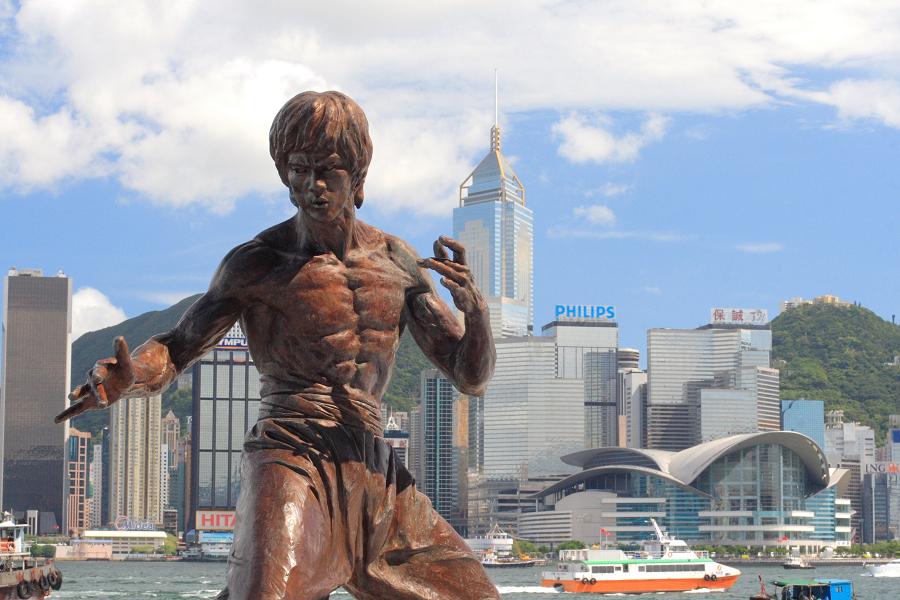
Lee became an iconic figure known throughout the world and remains very popular among Asian people and in particular among the Chinese, as he portrayed Chinese nationalism through his films. While Lee initially trained in Wing Chun, he later rejected well-defined martial art styles, favoring instead to utilize useful techniques from various sources in the spirit of his personal martial arts philosophy he dubbed Jeet Kune Do (The Way of the Intercepting Fist).
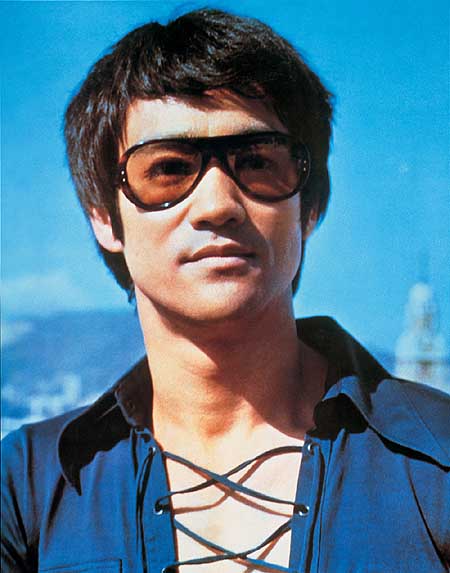
The Mystery of Bruce Lee's Death
Bruce Lee, dressed in the traditional Chinese outfit he wore in the movie Enter The Dragon, was laid to rest in Lakeview Cemetery in Seattle in late July of 1973. But long before Lee's sudden and tragic death in a Hong Kong apartment at age 32, rumors were rife throughout the Orient that he had been wounded or killed in fights.
"One day, I got a long-distance call from Hong Kong's largest newspaper," Lee recalled. "They asked me if I was still alive. 'Guess who you are talking to?' I replied."
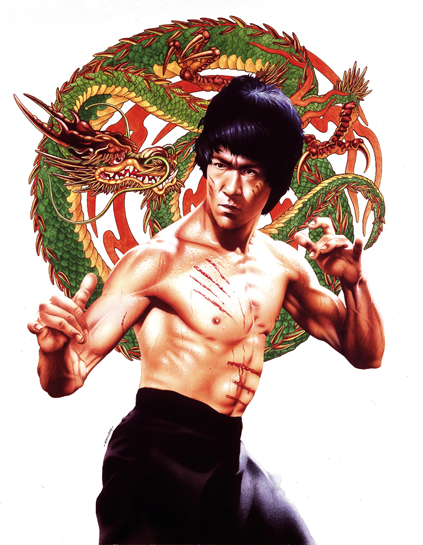
Thus, when Lee actually did die, speculation abounded as to the cause. The rumors ranged from Lee being killed by Hong Kong triads (gangsters) because he refused to pay them protection money - —something that was common for Chinese movie stars to do at that time —to his being killed by an angry martial artist's dim mak (death touch) strike. Some people claimed Lee was cursed—he had just bought a house in Hong Kong that was supposed to be haunted—or that he had died while mking love to actress Betty Tingpei, or that he had angered the Chinese martial arts community by teaching foreigners, and that he had been killed in a challenge match.

Many Chinese believed Lee was the victim of too much gum Ilk (intensity) in his training, while others cited drug use as the cause for his sudden demise. Still others believed that Lee's fate was sealed at birth, that it was in the stars. And, finally, there are those who think Lee's death was staged, and that he is merely waiting for the right time to return to society.
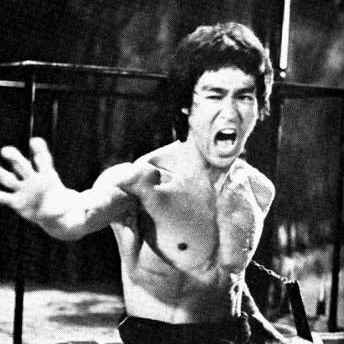
The facts of the case are this: Lee died after falling into a coma. The coroner's report was inconclusive, and medical authorities came up with five reasons for Lee's untimely death. However, they all agreed that it was caused by a cerebral edema (a swelling of the brain caused by a congestion of fluid). But what caused the edema became a matter of speculation. For the most part, the course of events on that fateful July day in 1973 can be pieced together. According to Lee's wife, Linda, Bruce met film producer Raymond Chow at 2 p.m. at home to discuss the making of Game of Death. They worked until 4 p.m., and then drove together to the home of Betty Tingpei, a Taiwanese actress who was to also have a leading role in the film. The three went over the script at Tingpei's home, and then Chow left to attend a dinner meeting.
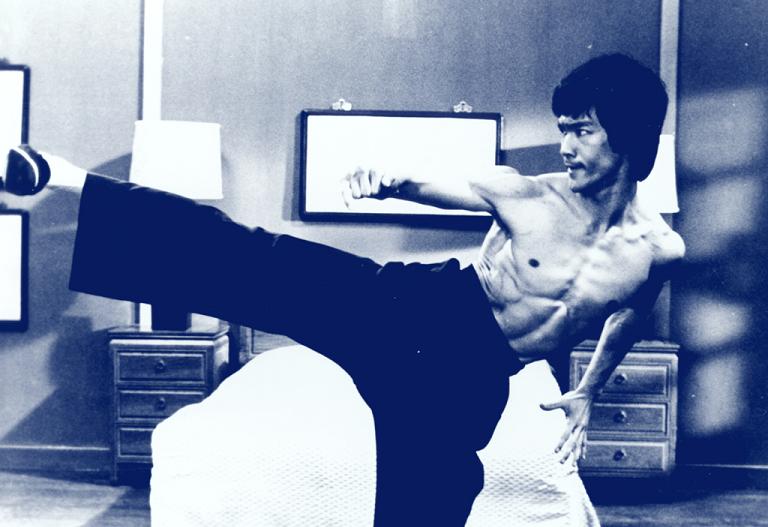
A short time later, Lee complained of a headache and Tingpei gave him a tablet of Equagesic—a kind of super sapirin. Apart from that, Lee reportedly consumed nothing but a couple of soft drinks.
At around 7:30 p.m., Lee lay down for a nap and was still asleep when Chow called to ask why he and Tingpei had not yet shown up for dinner as planned. The actress told Chow she could not wake Lee. The ensuing autopsy found traces of cannabis in Lee's stomach, but the significance of this discovery is debatable. Some believe the cannabis caused a chemical reaction that led to the cerebral edema, but the coroner's inquiry refutes this theory. In fact, one doctor was quoted as saying that the cannabis being in Lee's stomach was "no more significant than if Bruce had drunk a cup of tea that day."
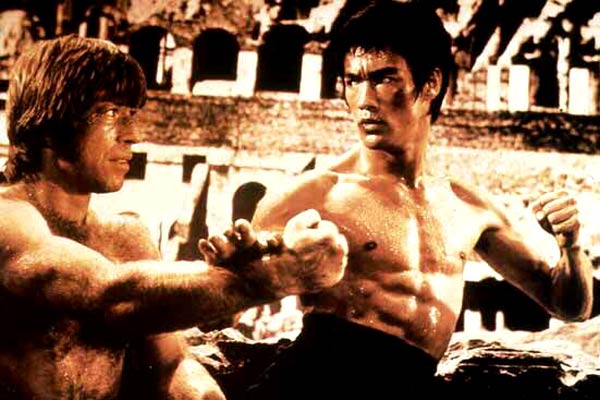
Dr. R.R. Lycette of Queen Elizabeth Hospital viewed Lee's death as a hypersensitivity to one or more of the compounds found in the headache tablet he consumed that afternoon. Although his skull showed no injury, his brain had swollen considerably, from 1,400 to 1,575 grams. None of the blood vessels were blocked or broken, so the possibility of a hemorrhage was ruled out. All of Lee's internal organs were meticulously examined, and the only "foreign" substance to be found was the Equagesic.
Chow came to the apartment and could not wake Lee either. A doctor was summoned, and he spent 10 minutes attempting to revive the martial artist before sending him by ambulance to Queen Elizabeth Hospital. By the time he reached the hospital, Lee was dead.
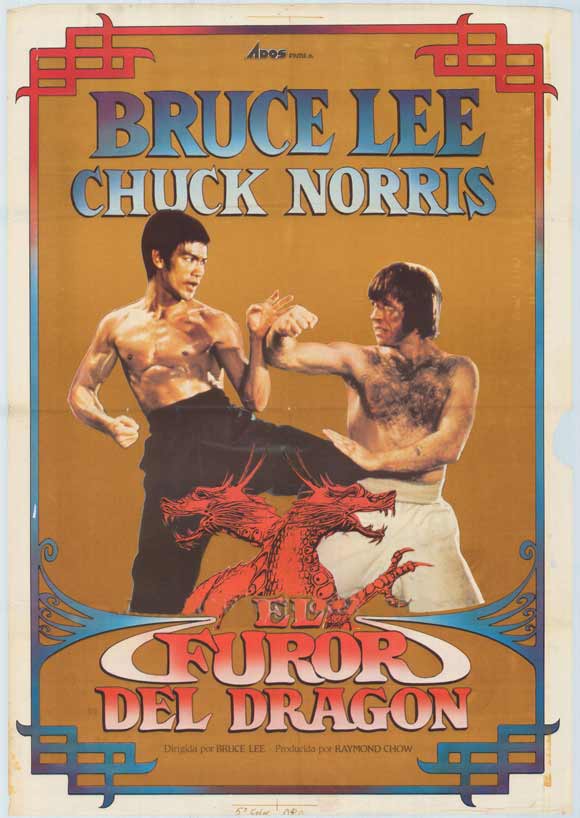
Foul play was immediately suspected as having a role in Lee's passing. Chow appeared on television to try to settle the public furor that quickly developed. He explained what happened, omitting only the fact that Lee had not died at home. The press soon uncovered the truth, however, and demanded to know what Chow was trying to cover up. R.D. Teare, a professor of forensic medicine at the University of London who had overseen more than 90,000 autopsies, was called in and declared that it was basically impossible for the cannabis to be a factor in Lee's death. In Teare's opinion, the edema was caused by hypersensitivity to either meprobamate or aspirin, or a combination of both. His view was accepted by authorities, and a determination of "misadventure" was stamped on Lee's death.
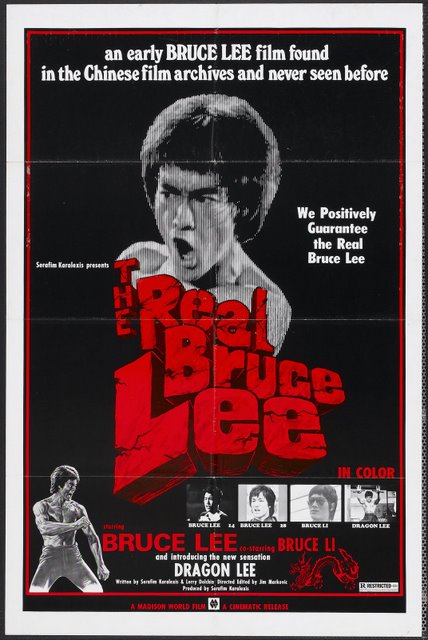
Strangely, an early death was a conceivability that Lee had contemplated with surprising frequency. According to his wife Linda, he had no wish to live to a ripe old age because he could not stand the idea of losing the physical abilities he had strived so hard to achieve.
"If I should die tomorrow," he used to say, "I will have no regrets. I did what I wanted to do. You can't expect more from life."
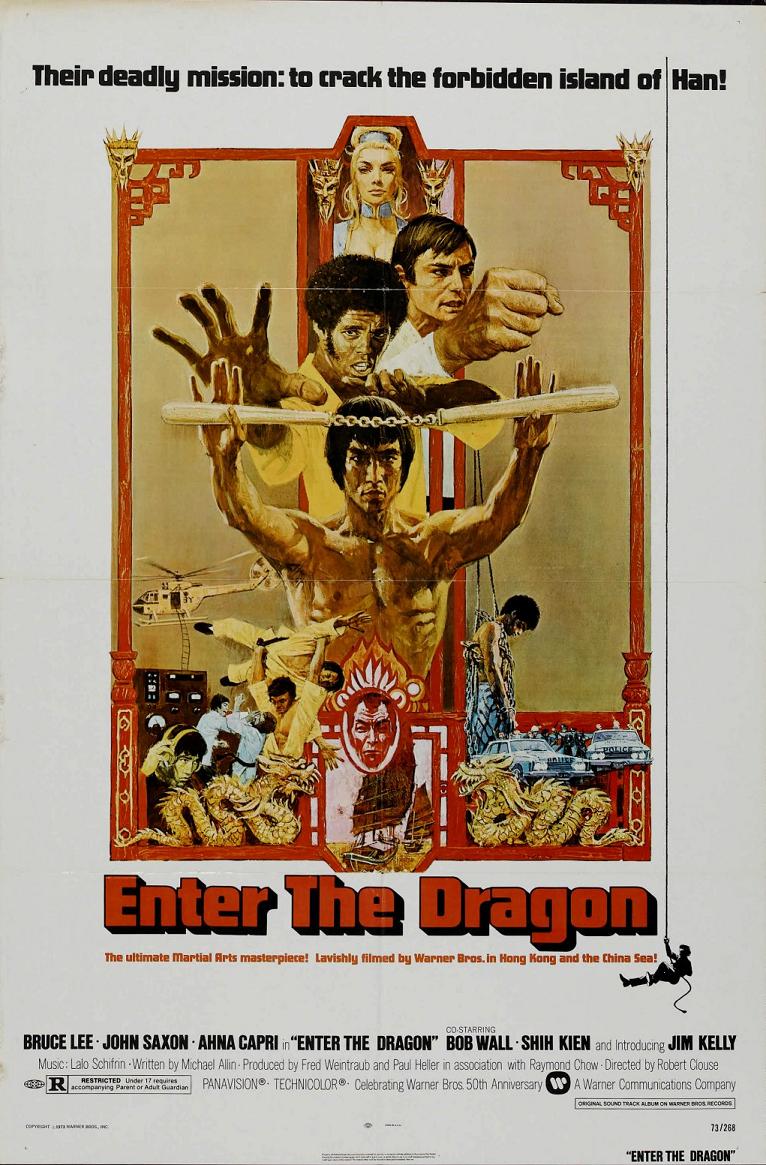
|
7
|

|
|
0
|

|
|
|
DCF
3/31/2010
DISCLAIMER: This posting was submitted by a user of the site not from Earth's Mightiest editorial staff. All users have acknowledged and agreed that the submission of their content is in compliance with our Terms of Use. For removal of copyrighted material, please contact us HERE.